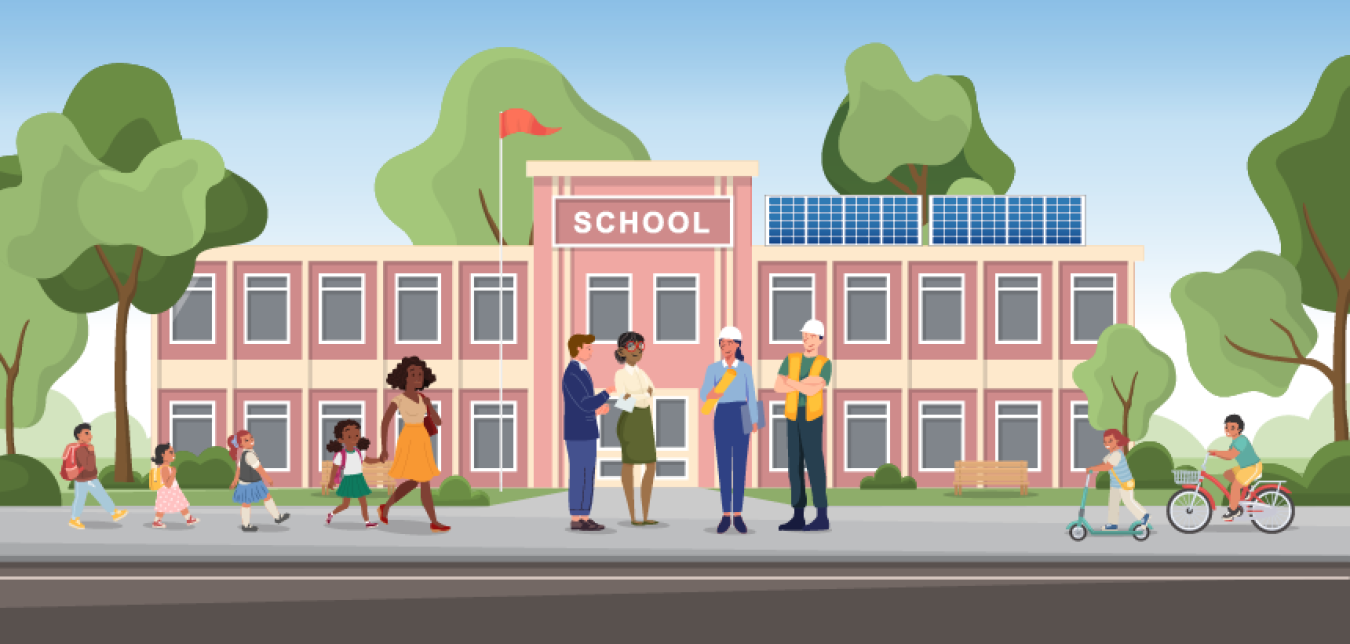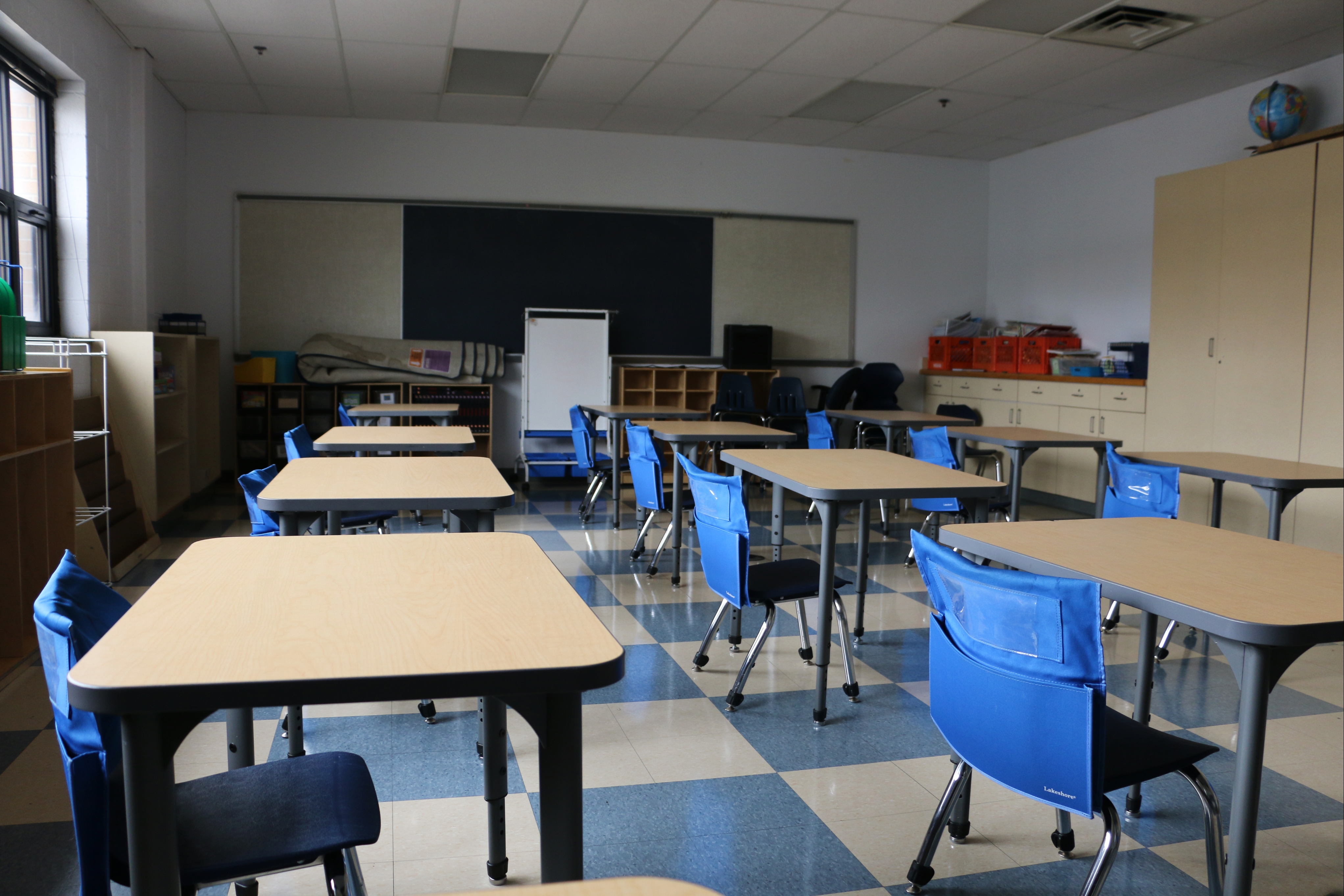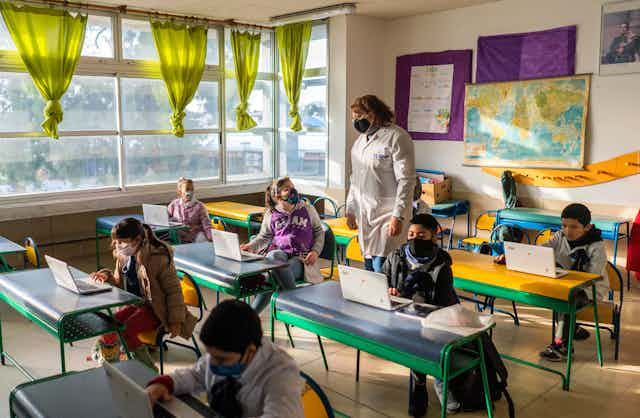Join Us: Events and Initiatives to Save Temecula Schools
Join Us: Events and Initiatives to Save Temecula Schools
Blog Article
Understanding the Importance of Institutions in Child Advancement and Neighborhood Development
Schools act as critical establishments for kid growth and community development, providing environments where scholastic success are enhanced by the cultivation of social skills and exposure to varied viewpoints. These instructional setups not just promote critical thinking and effective interaction however additionally foster compassion via collaborative jobs. Colleges' interaction with local neighborhoods via service-learning campaigns reinforces the bond in between family members and instructional institutions. This symbiotic partnership underscores the significance of institutions in nurturing energetic citizenship and lifelong knowing routines. What are the specific systems by which these institutions accomplish such profound effects?
Academic Accomplishment
Academic achievement works as a foundation of youngster growth, supplying the foundation upon which future knowing and success are built. Colleges play an essential function in fostering this academic development, providing structured settings where kids can get necessary expertise and cognitive skills. Standardized educational program ensure that pupils gain efficiency in core subjects such as maths, scientific research, and language arts, which are essential for both college and specialist chances.
In addition to presenting basic academic abilities, colleges additionally grow essential reasoning, analytic abilities, and intellectual interest. These cognitive competencies are vital for navigating intricate real-world circumstances and adjusting to the ever-evolving demands of the modern work environment. Teachers, as facilitators of learning, utilize varied instructional strategies to satisfy varied learning designs, thus taking full advantage of specific student capacity.
Furthermore, scholastic success is very closely connected to self-confidence and inspiration. Youngsters who experience academic accomplishments are extra likely to create a favorable self-concept and a long-lasting passion for knowing. Institutions additionally offer different sources, such as libraries and technology, which additionally boost the instructional experience and prepare students for a technically sophisticated culture.
Social Skill Growth
Beyond scholastic achievement, the function of schools in social skill growth is essential. Schools function as a primary place for youngsters to find out and exercise necessary social abilities such as collaboration, conflict, and communication resolution. In the organized environment of a class, trainees communicate with peers, educators, and various other college team, supplying numerous chances to establish these essential capacities.
Effective social skill development in colleges is promoted through team activities, collaborative jobs, and extracurricular programs. These interactions assist students understand social norms, develop compassion, and cultivate a sense of neighborhood. Group jobs educate pupils how to function with each other towards a common objective, listen to different perspectives, and navigate differences constructively.

The growing of social skills during academic year lays a foundation for future individual and professional partnerships. Save Temecula Schools. As students develop, the capability to efficiently connect and collaborate ends up being significantly vital, highlighting the college's critical function in all natural youngster development
Direct Exposure to Variety
Exposure to variety in schools is fundamental to cultivating an inclusive state of mind and widening trainees' perspectives. Schools function as a microcosm of the more comprehensive society, and coming across varied societies, languages, and socioeconomic backgrounds within this environment gears up trainees with necessary skills for browsing an increasingly globalized world. This exposure encourages compassion, lowers bias, and advertises common respect amongst peers.
Research indicates that pupils who interact with peers from diverse backgrounds show much better problem-solving skills and creativity. This understanding of variety prepares pupils for future work environments that value modern skills - Save Temecula Schools.

Area Engagement
The benefits of diverse classrooms prolong past the college walls, fostering a strong sense of neighborhood engagement among trainees. By engaging with peers from numerous social, socioeconomic, and ethnic histories, students gain a wider point of view and an appreciation for diversity. This exposure encourages them to end up being active residents who are ready to add favorably to their neighborhoods.
Institutions that highlight neighborhood involvement often incorporate service-learning projects, which allow students to resolve real-world troubles while applying scholastic abilities. These tasks not just boost trainees' understanding of their coursework however likewise instill a sense of responsibility and empathy. Collaborations between schools and regional organizations provide pupils with possibilities to participate in area events, better solidifying their duty as proactive area participants - Save Temecula Schools.
Additionally, parental and community involvement in colleges enhances the bond between instructional organizations and the neighborhoods they offer. When institutions open their doors to area events, workshops, and volunteer chances, they produce a collective setting that benefits all stakeholders. This common support system ensures that pupils receive alternative development, preparing them to end up being well-rounded people who value and contribute to their areas. Through these efforts, schools play a crucial duty in supporting community involvement and fostering social development.
Lifelong Discovering Habits
Creating lifelong knowing routines is essential for a child's continual development and adaptability in an ever-changing world. Schools play a pivotal role in instilling these practices by producing a setting that cultivates curiosity, essential reasoning, and a love for expertise. Via extracurricular activities and diverse curricula, educators encourage pupils to check out various subjects, evaluate info seriously, and use their finding out to real-world scenarios.

Additionally, colleges supply an organized environment where kids can develop self-discipline and time monitoring skills, both of view it now which are critical for continuous discovering. additional reading By stressing the relevance of establishing goals, assessing progression, and adapting methods, schools prepare pupils to browse the complexities of adult life, ensuring they remain long-lasting students and contributors to society.
Final Thought
In verdict, colleges are vital in cultivating youngster development and community growth by supplying atmospheres helpful to scholastic achievement, social skill development, and exposure to diversity. With joint tasks and communications, colleges boost critical reasoning, compassion, and interaction abilities. Area involvement initiatives further enhance the bond between schools and regional neighborhoods. Inevitably, colleges grow lifelong knowing routines, furnishing people with the required knowledge and skills to add favorably to society.
In the structured atmosphere of a classroom, students engage with peers, teachers, and various other school team, providing countless chances to establish these essential capacities.
In significance, exposure to variety within schools not just enriches specific students but additionally strengthens the social material of the neighborhood as a whole.
The advantages of varied classrooms expand beyond the college wall surfaces, cultivating a solid sense of neighborhood engagement among students.Institutions that stress area engagement typically include service-learning projects, which allow trainees to address real-world problems while applying academic abilities. Collaborations between schools and neighborhood companies offer students with opportunities to get involved in area events, further solidifying their role as positive community participants.
Report this page